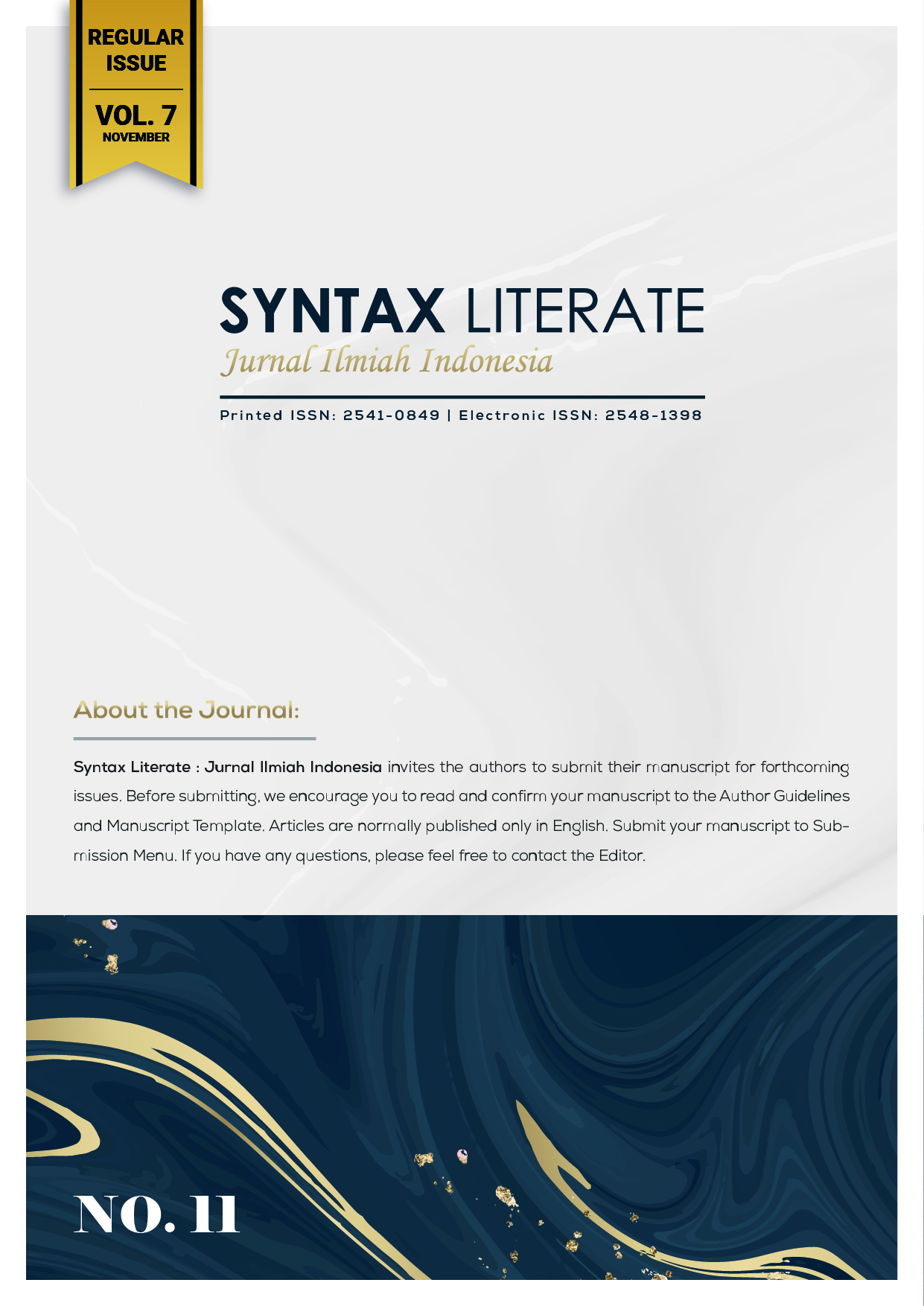Dhikr Therapy to Improve Peace in of Mind For Drugs Users at Pondok Pesantren As-Syifa Kabupaten Kulon Progo
Abstract
During rehabilitation and withdrawal, drug users often feel worried about the future, fear that they will be rejected by society and their families, and feel guilty about themselves and God. This concern causes drug users to feel negative emotions and feelings of discomfort. This study was conducted to see the effectiveness of dhikr therapy to increase peace of mind in drug users who are undergoing rehabilitation. Eight former drug users were involved in this study. Subjects were divided into two groups, namely the experimental group (n = 4) and the control group (n = 4). The research design used was a pre-test post-test control group design and was measured three times (pre-test, post-test, and two-week follow-up). The measuring instrument used in the study is Tatmain al-Qulūb (TQS) by Rusdi (2016) which is arranged based on aspects of peace of mind. The results of this study found that there was a significant increase in peace of mind in drug users after being given dhikr therapy.
Downloads
References
Anggraieni, W., N. & Subandi. (2014). Effect of remembrance relaxation therapy to reduce stress in patients with essential hypertension. Journal of Interventional Psychology. 6(1), 81-102.
Anshori, A. (2003). Dhikr and peace of mind. Yogyakarta: Student Library.
Ash Shiddieqy, H., T., M. (2001). Islamic legal philosophy. Semarang: Rizki Putra Library.
Askat, A., W. (2000). The will of the dhikr and prayer of the Prophet Muhammad. Yogyakarta: Discourse Creation.
Asmaran, A. (1992). Introduction to moral studies.
Jakarta: Rajawali.
Asy-Sya'rani, S., A., W. (2000). 's Beloved God Jakarta: Serambi Semesta
Azmiyati, SR. (2014). Description of Drug Users on Street Children in Semarang City. Journal of Public Health (KEMAS). 9 (2): 137-143\
Beck, A., T., Freeman, A. & Davis, D., D. (2004). Cognitive therapy of personality disorders. New York: The Guldford Press
Beck, A., T. & Clark, D., A. (2010). Cognitive therapy of anxiety disorders. New York: The Guildford.
Chaplin, J., P. (2006). Complete Dictionary of Psychology. Jakarta: Raja Grafindo Persada.
Chodjim, A. (2003). Alfatihah, opens the sun with an opening letter. Jakarta: Science Hall.
Davison, G., C. & Neale J., M. (2006). Abnormal Psychology. Jakarta: Raja Grafindo Persada.
Durrand, M., V & Barlow, D., H. (2007). Digest of abnormal psychology fourth edition book second.Student Library
Paradise. (2016). Spirituality Worship as a path to true mental health. Al-Adyan Journal. 11(1), 1-24
Frager, R. (1999). The heart of the soul (Sufi psychology for transformation). Jakarta: Veranda of Science
Hannan, M. (2014). Dhikr Khafi to reduce anxiety levels in the elderly. Journal of health “Wiraraja Medika†4 (2) 47-53
Hawari, D. (2006). NAZA Abuse & Addiction. Jakarta: FKUI
Hawari, D. (2013). Stress management anxiety and depression. Jakarta: FKUI.
Kaplan, H., I. & Sadock, B., J. & Grebb, J., A. (1997). Psychiatry Synopsis. Jakarta: Literature Binarupa.
Kartini, K. & Jenny, A. (1989). Mental Hygiene and Mental Health in Islam. Bandung: Forward Mandar.
Maimunah, A. & Retnowati, S. (2011). The effect of relaxation training with dhikr to overcome the anxiety of the first pregnant woman. Journal of Islamic Psychology (JPI) 8 (1) 1-22
Mudzkiyyah, L. (2014). Al-Fatihah remembrance therapy to improve the subjective well-being of drug addicts in the rehabilitation period. Thesis. Faculty of Psychology and Socio-Cultural Sciences, Islamic University of Indonesia, Yogyakarta.
Najati, M., U. (2005). The Qur'an and psychology (Translation). Jakarta: Library Level.
Nevid. (2005). Abnormal psychology. Jakarta: Erlangga.
Osman, A., Z. (2008). The effectiveness of cognitive behavior therapy (CBT) to reduce anxiety levels and improve the quality of life of prisoners / inmates who abuse drugs in prison class 1 Surakarta. Thesis. Postgraduate Family Medicine Study Program at Sebelas Maret State University, Surakarta
Copyright (c) 2023 Reza Mina Pahlewi

This work is licensed under a Creative Commons Attribution-ShareAlike 4.0 International License.











